Minister of Environment Maisa Rojas Discusses Chile's Environmental Policies on Campus
The event was moderated by Columbia SIPA's Mauricio Cárdenas and organized by the Santiago Center, the MPA in Global Leadership and ILAS.
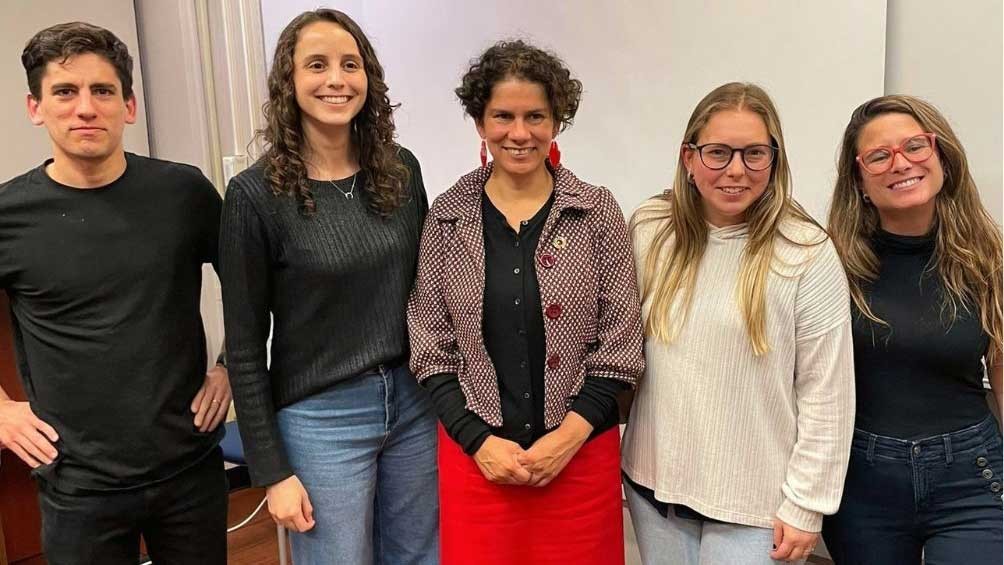
“While in New York for the United Nations Water Conference held during March 22-24, Chilean minister of Environment Maisa Rojas visited Columbia’s School of International and Public Affairs (SIPA) to meet with students and talk about the country’s environmental policies, the implementation of the Chilean Climate Act that was approved during 2022, the achievements of COP27, and what she expects in terms of environmental issues and climate action from the second constitutional attempt that the country is currently undergoing.
The event entitled “Environmental Policies in Chile: Past, Present and Future,” was organized by the Santiago Center, SIPA’s MPA in Global Leadership, and the Institute of Latin American Studies (ILAS), was moderated by SIPA Professor Mauricio Cárdenas and was attended by ILAS director Vicky Murillo, researchers from the Columbia Climate School International Research Institute for Climate and Society (IRI), along with PhD researchers, students from Chile as well as other countries.
“Your CV is short but impressive because it’s full of important things,” said Cárdenas as he introduced Rojas to the audience. Trained as a Physicist and Climatologist at Universidad de Chile, Rojas has a PhD in Atmospheric Physics from Oxford University and is also a Columbia alumna, having been a postdoctoral research scientist at the IRI during 2000 and 2001. Prior to being appointed Minister of Environment in early 2022, she was the director of the Center for Climate Science and Resilience Research (CR2 Chile), a professor at Universidad de Chile's Department of Geophysics, was the coordinating lead author of the Intergovernmental Panel on Climate Change's (IPCC) climate report on the current and future state of world climate, was a climate advisor during Michelle Bachelet’s second government, the head of the climate change scientific committee when Chile was the host of COP25 during Sebastián Piñera’s second term in office, and also participated in the process of approving in congress the Chilean Climate Change Law, which now – as Minister – she has the role of implementing.
In Rojas’ opinion, what happened in Chile is that “something which used to be a headache became a blessing. Chile does not have fossil fuels and hence energy security was a problem for a long time, but we are very rich — as every country in the world is — in renewable energies, so the energy transition started to take place not driven by climate action, but because of energy security issues.” However, she emphasized that – in spite of its fundamental relevance – addressing climate change goes well beyond the energy transition: “We have to address the causes of climate change by means of mitigation, but also its effects” [...] “The big challenge is building resilience in how we address climate change and the biodiversity crisis,” she stressed.
Cárdenas mentioned the role she played during COP27 in Egypt, where, along with her German counterpart Jennifer Morgan – special representative for international climate policy of the German Federal Foreign Office – secured the establishment of a “Loss and Damage Fund” to provide funding for vulnerable countries hit hard by climate disasters. For Cárdenas – who is also a Global Senior Research Fellow at Columbia’s Center on Global Energy Policy – the creation of the fund is the most important outcome of COP27. Rojas admitted that when she accepted the position her team was concerned, because the idea of even having loss and damage in the agenda seemed unlikely: “Having the item in the agenda took us until the night before the COP started, but there was a big agreement that it was time to address the question and that it could not be avoided any longer,” she stated, adding that there were a series of decisions that ultimately allowed for this to happen: US negotiators were willing to have the discussion; the G77 group of 134 developing countries plus China, all stood behind the idea of the fund, and ultimately, that the European Union publicly agreed to the fund at the plenary.
Later on, Cárdenas asked the Minister about the new constitutional process that Chile is currently undergoing after the proposal drafted by the Constitutional Convention was rejected in the 2022 plebiscite, specially considering the limitations that this second attempt entails. Although Rojas deemed the initial process to be “a big failure for many reasons,” she pointed that “if you read the proposal, there were not only rights for nature and the environment, but you could read the climate and the ecological crisis across a number of chapters. There were principles, rights, institutions. In that sense it was a very 21st century way to address these challenges.” In terms of her current expectations, she was doubtful about the incorporation of nature rights and unsure about how water issues will be addressed, and stated: “I have some optimism that we will have a Constitution that will allow us to address these global challenges.”
Image Carousel with 7 slides
A carousel is a rotating set of images. Use the previous and next buttons to change the displayed slide
-
Slide 1: Maisa Rojas on Campus
-
Slide 2: Maisa Rojas on Campus
-
Slide 3: Maisa Rojas on Campus
-
Slide 4: Maisa Rojas on Campus
-
Slide 5: Maisa Rojas on Campus
-
Slide 6: Maisa Rojas on Campus
-
Slide 7: Maisa Rojas on Campus
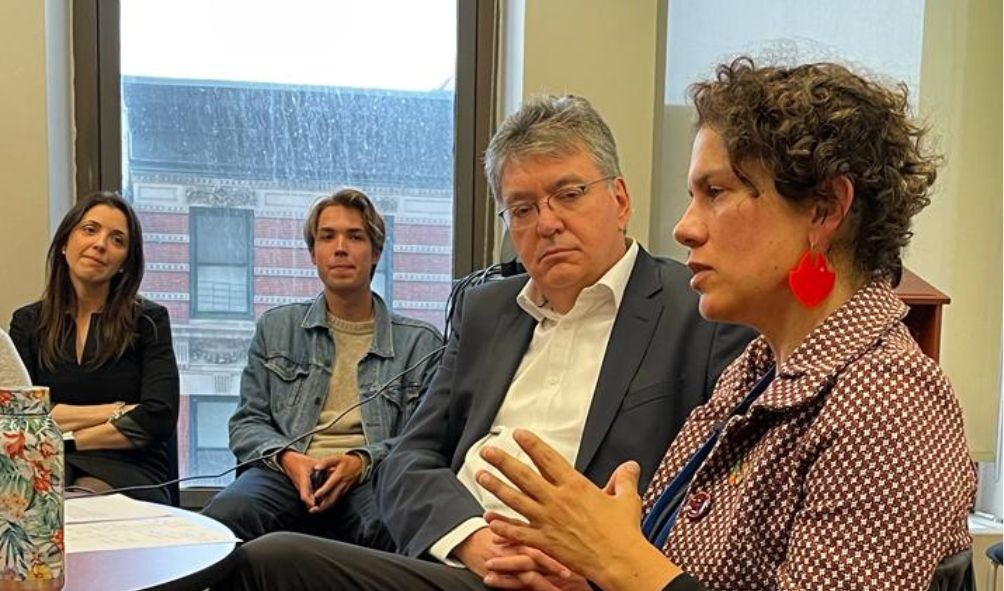
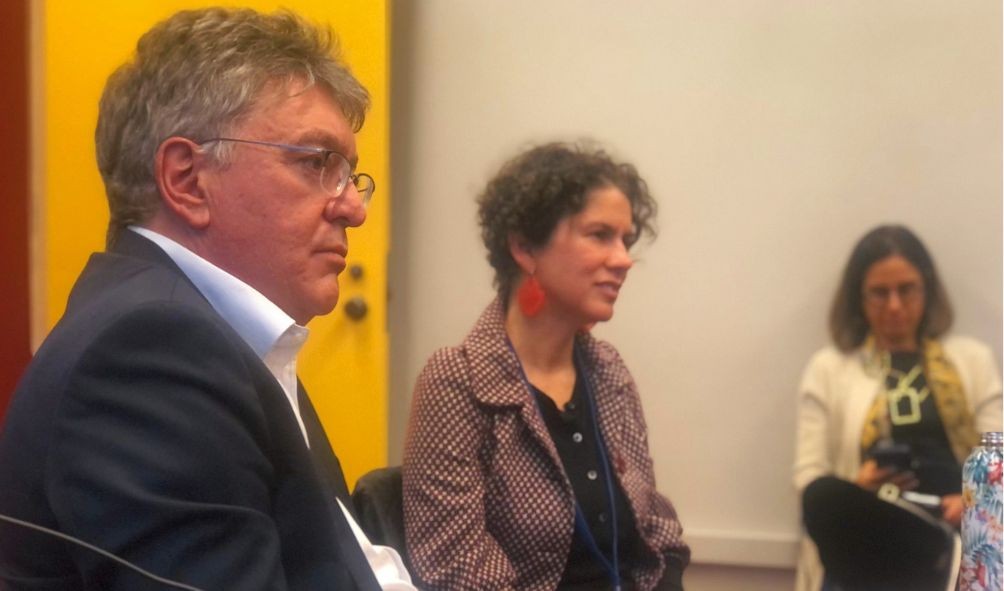
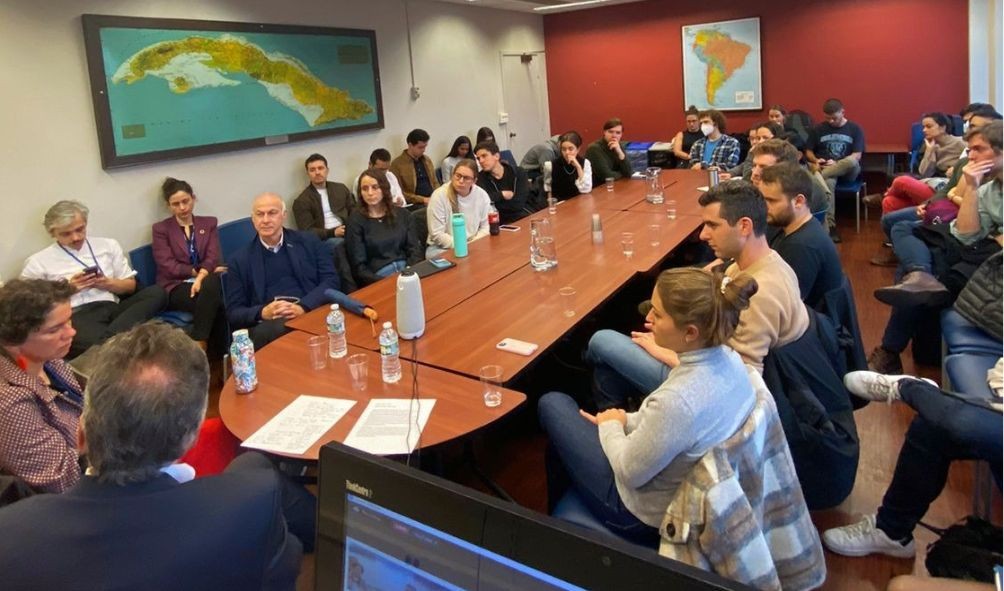
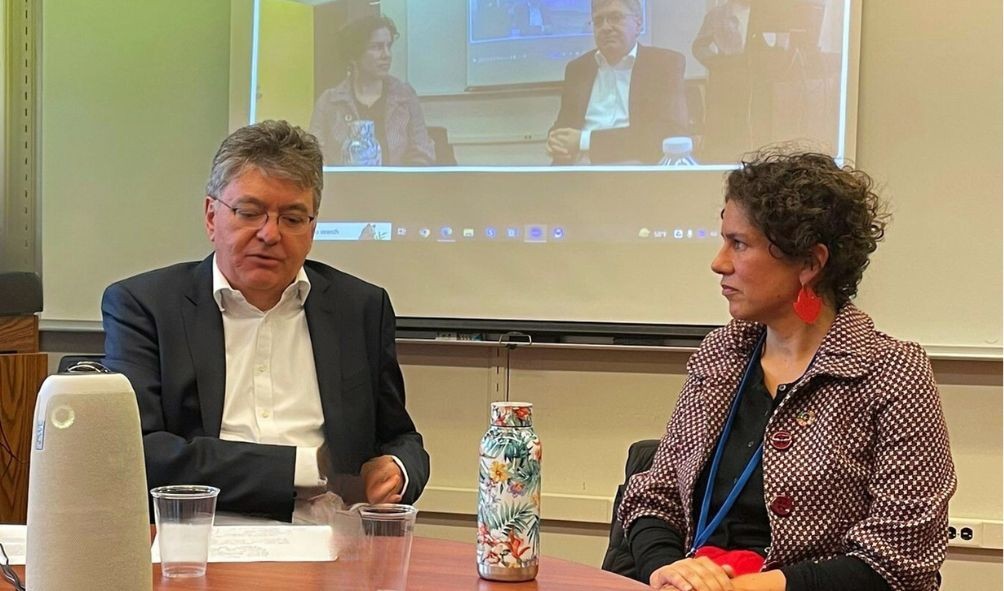
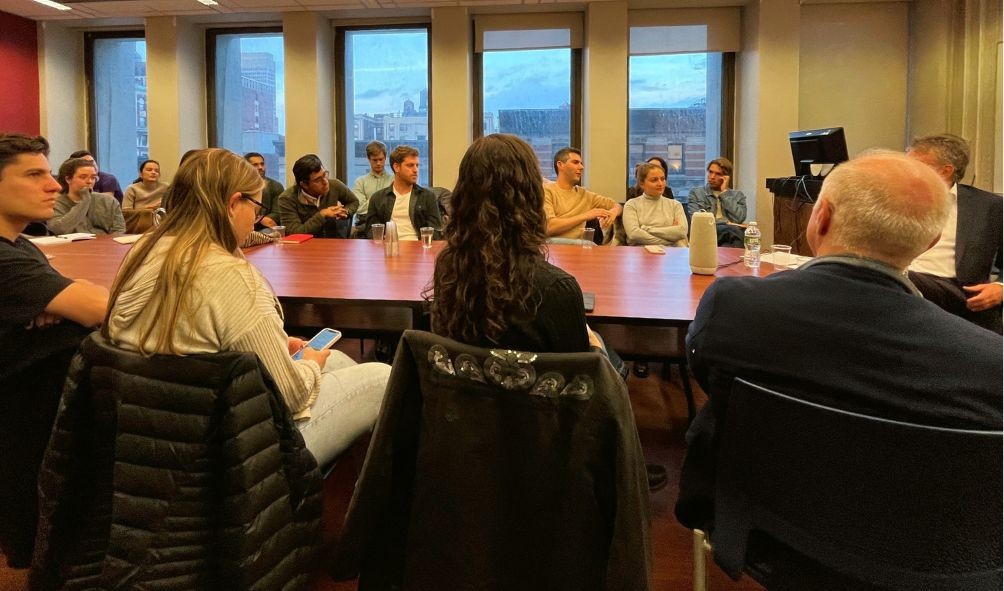
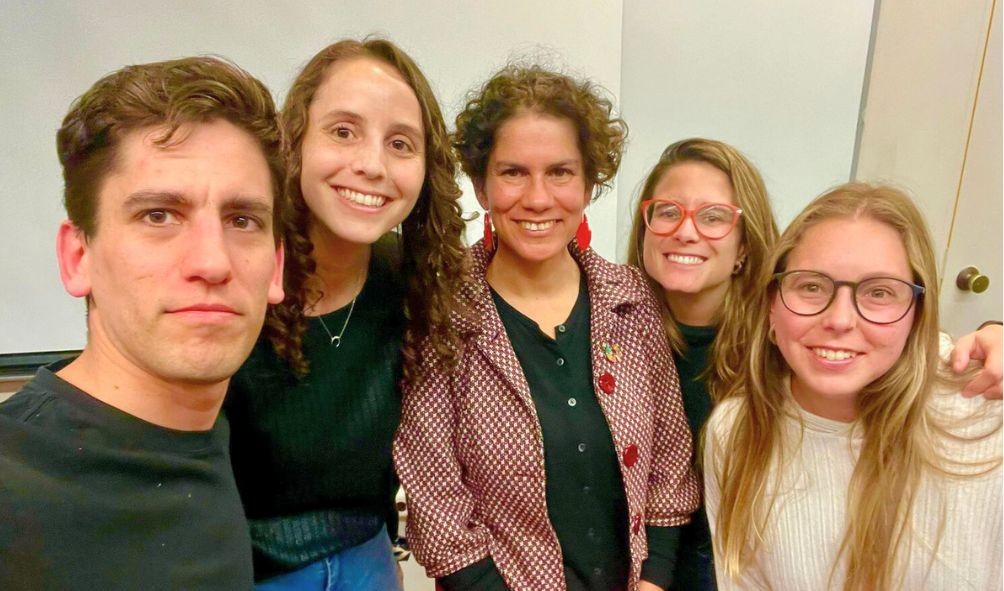
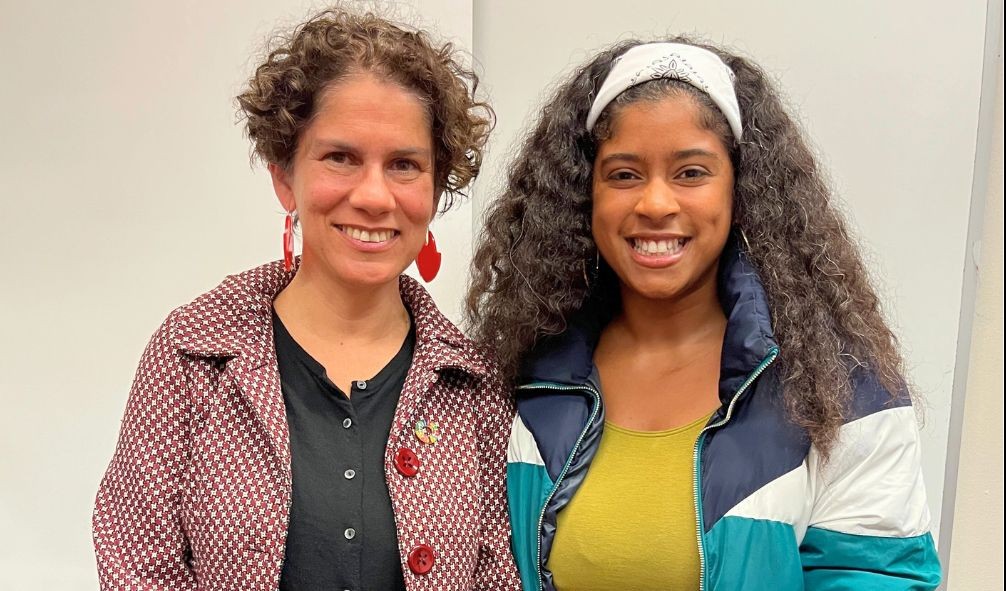
The conversation then led to discussing the implementation of the Climate Act and the key issues for the Ministry during the next three years.
About the Climate Law, Rojas explained that it includes a financial strategy for climate change, the obligation of doing an accounting of public spending on climate, a disclosure of climate risk for all financing institutions, and a chapter on risks for the Central Bank, among other issues such as the rise in carbon tax that the government seeks to achieve.
Regarding the Ministry’s priorities, she mentioned that given the current critical level of biodiversity destruction, the creation of a Biodiversity and Protected Areas Service is one of the top ones and that the project to create it has been sitting in congress for 12 years: “The loss of biodiversity is more severe than climate change because it’s irreversible. Once a species goes extinct there’s no way of bringing it back. This has to be taken very – very seriously, and we have to look at both of them together. If you find a solution to one of the crises that deepens the other, it’s definitely not something you want to do, because at the end of the day what we are living is a ‘relationship crisis’. Put in simple words: We have a bad relationship with the environment and a bad relationship among ourselves. In the case of Chile this is translated into the fact that we have territories that are called ‘sacrifice zones,’ and that can’t happen,” Rojas noted. She added that she is hopeful that the project will be approved during 2023: “It’s a basic necessity and an enabler for biodiversity protection to have that service.”
As a country whose economy heavily relies on mining, the questioned was expectedly raised by one of the students in the audience, to which Rojas answered that the country needs mining and that the big issue is how to minimize its impact: “We should not be talking about ‘green mining’ or ‘sustainable mining,’ because it is not green, it is not sustainable, but it has to be responsible. We need to agree on how much impact we are willing to accept, and that has to be a very honest conversation that we need to have with Chilean and foreign companies,” stressing the vital importance of civic dialogue on environmental issues when it comes to mining or the new green hydrogen industry: “We need social legitimacy and that requires social dialogue. In the case of green hydrogen for instance, many people say ‘Yes, let’s develop this and export it,’ but if you go to Magallanes people say ‘Why should my environment change completely to produce energy that will be shipped over to Germany or the US?’. We need to address these very urgent crises quickly and it’s going to be complicated if we don’t have that dialogue.”
Further priorities for the Ministry of Environment during the remaining three years of the Boric administration, are the acceleration of the energy transition and improving the lives of people that live in the infamous ‘sacrifice zones’ of Quintero, Puchuncaví, Coronel, Huasco, Mejillones, and Tocopilla. Lastly, Rojas announced the recent creation of a Natural Capital Committee integrated by the Ministries of Environment and Finance, as well as the Chilean Central Bank, which will economically measure, value, and protect the country’s natural capital: “We always say we need to take care of nature, but at the end of the day, in many cases when we want to do something at the expense of nature, we give other things an economic value but we don’t give it to nature,” she said, adding that the aim of the Committee is to define how the Chilean ecosystems can be incorporated into the country’s accounting: “We need to be able to address the biodiversity crisis, not just from the Ministry of Environment, but also from Finance,” she closed.